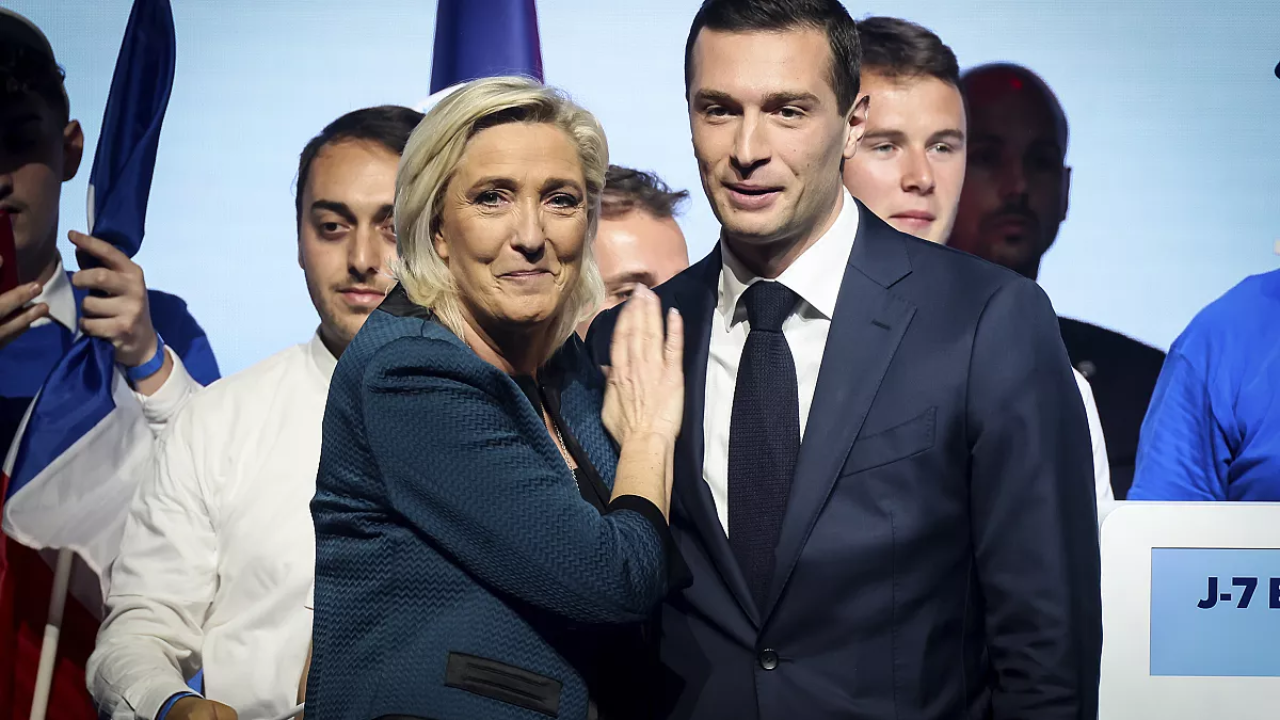French voters propelled the far-right National Rally to a commanding lead in the first round of legislative elections on Sunday, creating significant political uncertainty in the country. The elections, called unexpectedly by President Emmanuel Macron just three weeks ago, have positioned Marine Le Pen’s National Rally as a formidable force.
President Macron urged voters to oppose the far-right in the upcoming second round, emphasizing the need to rally against extremism. This appeal comes as projections by polling agencies suggest that the National Rally has a strong chance of securing a majority in the lower house of parliament for the first time. Marine Le Pen, leader of the National Rally, has called on voters to grant her party an “absolute majority” in parliament. She envisions a new government led by National Rally President Jordan Bardella as prime minister, focusing on France’s “recovery.”
Projections indicate that the National Rally secured about one-third of the first-round vote, nearly double their 18% share from 2022. The party’s recent success in European elections, which led Macron to dissolve parliament and call for new elections, has fueled their momentum. The upcoming second round, set to conclude on July 7, is crucial. It raises questions about how Macron will manage power-sharing with a potentially hostile prime minister. The elections’ outcome could impact European financial markets, Western support for Ukraine, and the management of France’s nuclear arsenal and global military force.
Many French voters are disillusioned with rising inflation and economic challenges, as well as Macron’s perceived disconnect from their lives. Le Pen’s National Rally has capitalized on this discontent, particularly through platforms like TikTok. A new left-wing coalition, the New Popular Front, also poses a challenge to Macron’s centrist alliance. This coalition includes French Socialists, Communists, Greens, and the hard-left France Unbowed party, which promises to reverse unpopular reforms such as raising the retirement age.
Turnout was notably high, standing at 59% three hours before polls closed—20 percentage points higher than in the last first-round vote in 2022. Some pollsters believe this high turnout could temper the National Rally’s gains, as voters may have mobilized to counter the far right. Early results were expected later Sunday. Macron and Le Pen voted in their respective strongholds, highlighting the stark divisions within the country. In Paris, voters expressed concerns over immigration and the rising cost of living, reflecting the deepening divide between far-right and far-left blocs and a weakened president in the center.
Macron’s decision to call early elections was a risky move aimed at jolting voters into supporting moderate forces. However, preelection polls suggested the National Rally had a realistic chance of winning a parliamentary majority. In such a scenario, Macron would face the challenge of cohabitation, naming Bardella as prime minister, which would significantly weaken his position both domestically and internationally.
The elections have broader implications, with huge public spending promises from both the National Rally and the left-wing coalition raising concerns about France’s heavy debt. In France’s overseas territories, such as New Caledonia, voter sentiment also reflects broader issues of governance and representation. As France awaits the second round of elections, the political landscape remains uncertain, with potential far-reaching consequences for the nation’s future.












